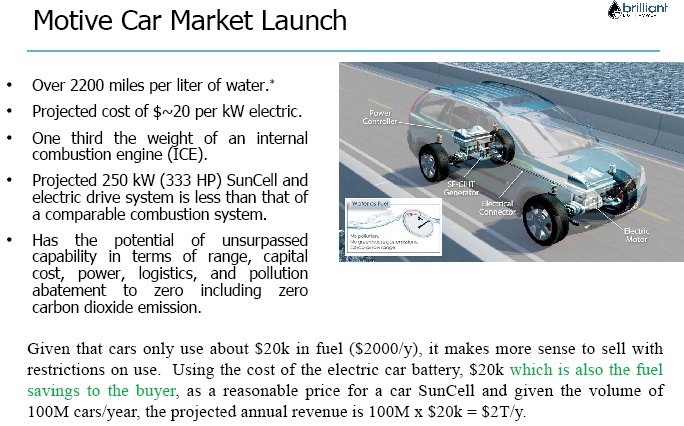Well, they assume a battery will be involved as the power source, and that's not going to cut it. Straight-line projections into the future RARELY work out.
This, however, is the future:
Brilliant Light Power, BrLP Motive car market launch

Compare to a personal cellphone back in the mid-1990s. If you could go back in time to 1995 and tell people that these hand-held "bricks" would very soon disrupt virtually every industry and become your main source for information, banking, shopping, entertainment, photography, movie-making, navigation and controlling appliances in your home (among many other things), they would simply not believe you.
"Where would the bandwidth for all that come from?" they might ask, just as critics of EVs today wonder where will all the "bandwidth" (electricity) will come from to charge up all these electric vehicles. They will point to the relative dearth of EV charging stations, scoff at the "mileage" we get today from these things, and write the whole enterprise off.
Not realizing that many of the brightest engineers in the world are currently putting their minds to increasing the capability of EVs by leaps and bounds.
Just as it was hard to imagine in 1995 that in just a decade or two, your "cellphone" would be holding all your data and photos, streaming all your music and video, as well as conducting nearly all your financial transactions, it is just as hard to imagine today that in a decade or two, EVs will charge up in minutes, have all the bells and whistles of your luxury cars today and will get up to 1,000 miles between charges.
The EVs of 10-20 years from now will look nothing like the EVs of today. In fact, the EVs of today will look prehistoric, like the Blackberries, the iPods, and the compact disc players look to us today - and that were so cutting edge just 20 years ago.
As impressive as a Tesla vehicle might look today, in a decade or so, it will resemble how a 486-based computer running Windows 3.1 and DOS looks to us today.
The government can put in all the silly "feel-good" mandates on EVs they want but it will be private industry that will propel EVs to market dominance. Tesla is about to have a lot more company in the EV space.
Competition is good.
Again, what is the problem EVs are trying to solve here, that current cars don’t.
Cellphones were totally different than landlines. But in the end, an EV is still just a car.
Spot on! A few years ago EVs had 0% market share. Now it’s climbing extremely fast. You can’t stop revolutionary tech changes. The cell phone comparison is very good.
Well, they assume a battery will be involved as the power source, and that's not going to cut it. Straight-line projections into the future RARELY work out.
This, however, is the future:
Brilliant Light Power, BrLP Motive car market launch

Those are invalid analogies.
With electronic info gadgets, you’re pushing electrons. If you were to blow up an electron to the size of the earth it would weigh less than a feather. It’s easy to see that there will be plenty of ‘bandwidth’ and capability for years to come if we could build our cars out of such a material as steel that weighed as much as a short string and was 10X stronger than Titanium.